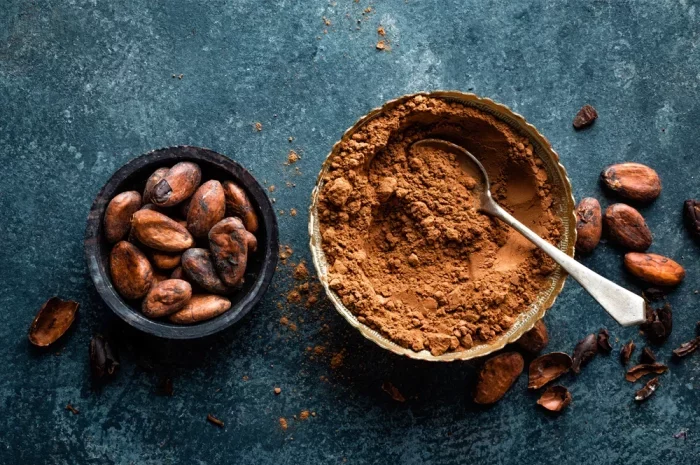Smoothies are a popular choice for individuals looking to boost their nutrient intake while enjoying a delicious and refreshing beverage. With countless combinations of fruits, vegetables, and other ingredients, smoothies offer endless possibilities for customization.
However, one key decision that can significantly impact the nutritional profile and taste of your smoothie is the choice of milk. From traditional cow’s milk to plant-based alternatives, the options can seem overwhelming.
In this comprehensive guide, we’ll explore the healthiest milk options for smoothies, considering factors such as nutritional content, flavor, and dietary preferences. Armed with this knowledge, you can make informed decisions to create smoothies that are both delicious and nutritious.
Understanding Milk Varieties
Before diving into specific milk options for smoothies, let’s take a closer look at some of the most common varieties available:
1. Cow’s Milk:
Cow’s milk is a traditional and widely consumed dairy product that comes in various forms, including whole milk, low-fat milk, and skim milk. It is a rich source of essential nutrients such as calcium, protein, vitamin D, and B vitamins.
2. Almond Milk:
Almond milk is a popular plant-based alternative to cow’s milk made from ground almonds and water. It is naturally low in calories and contains no cholesterol or saturated fat. Almond milk is often fortified with calcium, vitamin D, and other nutrients.
3. Soy Milk:
Soy milk is made from soybeans and is a rich source of protein, making it a popular choice for individuals following a plant-based diet or those with lactose intolerance. It is also fortified with calcium, vitamin D, and other vitamins and minerals.
4. Coconut Milk:
Coconut milk is made from the flesh of mature coconuts and has a rich, creamy texture and tropical flavor. It is high in saturated fat but contains beneficial medium-chain triglycerides (MCTs) and is often used in smoothies for its unique taste.
5. Oat Milk:
Oat milk is made from oats and water and has a creamy texture and mild, slightly sweet flavor. It is naturally free of cholesterol and lactose and is often fortified with calcium and vitamin D.
6. Cashew Milk:
Cashew milk is made from blended cashews and water and has a creamy texture and nutty flavor. It is lower in calories and fat than cow’s milk and is often fortified with vitamins and minerals.
The Healthiest Milk Options for Smoothies
When choosing the healthiest milk for your smoothies, consider factors such as nutritional content, flavor, dietary preferences, and any dietary restrictions or allergies you may have. Here are some of the healthiest milk options for smoothies, along with their key benefits and considerations:
1. Almond Milk:
Almond milk is a popular choice for smoothies due to its creamy texture, mild flavor, and low calorie and fat content. It is naturally free of cholesterol and lactose, making it suitable for individuals with dairy allergies or lactose intolerance.
Almond milk is also a good source of vitamin E, an antioxidant that helps protect cells from damage, and is often fortified with calcium and vitamin D for added bone health benefits.
Benefits:
- Low in calories and fat
- Cholesterol-free
- Lactose-free
- Good source of vitamin E
- Often fortified with calcium and vitamin D
Considerations:
- May not be suitable for individuals with nut allergies
- Some brands may contain added sugars or thickeners
2. Soy Milk
Soy milk is a nutrient-rich option for smoothies, providing a good source of high-quality protein, essential amino acids, and phytonutrients called isoflavones. It is naturally free of cholesterol and lactose, making it suitable for individuals with dairy allergies or lactose intolerance.
Soy milk is also rich in calcium, vitamin D, and other vitamins and minerals, making it a well-rounded choice for smoothies.
Benefits:
- Rich source of protein and essential amino acids
- Contains isoflavones with potential health benefits
- Cholesterol-free
- Lactose-free
- Good source of calcium and vitamin D
Considerations:
- May not be suitable for individuals with soy allergies
- Some people may prefer the taste of other milk alternatives
3. Coconut Milk
Coconut milk adds a rich, creamy texture and tropical flavor to smoothies, making it a popular choice for individuals looking for a dairy-free alternative. It is high in saturated fat but contains beneficial medium-chain triglycerides (MCTs), which are easily absorbed and metabolized by the body for quick energy.
Coconut milk is also naturally free of cholesterol and lactose and may contain antioxidants and antimicrobial compounds.
Benefits:
- Creamy texture and tropical flavor
- Rich in medium-chain triglycerides (MCTs)
- Cholesterol-free
- Lactose-free
- May contain antioxidants and antimicrobial compounds
Considerations:
- High in saturated fat
- Some brands may contain added sugars or thickeners
- May not be suitable for individuals with tree nut allergies
4. Oat Milk
Oat milk is a creamy and mild-tasting option for smoothies, made from oats and water. It is naturally free of cholesterol and lactose and is often fortified with calcium and vitamin D for added nutritional benefits. Oat milk is also rich in soluble fiber, which can help promote heart health and support digestion.
It has a lower environmental impact compared to dairy milk and is suitable for individuals with dairy allergies or lactose intolerance.
Benefits:
- Creamy texture and mild flavor
- Naturally free of cholesterol and lactose
- Rich in soluble fiber
- Often fortified with calcium and vitamin D
- Lower environmental impact compared to dairy milk
Considerations:
- Some brands may contain gluten, making it unsuitable for individuals with gluten intolerance or celiac disease
- May contain added sugars or thickeners
5. Cashew Milk
Cashew milk is a creamy and slightly sweet option for smoothies, made from blended cashews and water. It is lower in calories and fat than cow’s milk and contains beneficial nutrients such as protein, healthy fats, and vitamins and minerals.
Cashew milk is naturally free of cholesterol and lactose and is often fortified with calcium and vitamin D for added bone health benefits.
Benefits:
- Creamy texture and nutty flavor
- Lower in calories and fat than cow’s milk
- Naturally free of cholesterol and lactose
- Contains protein, healthy fats, and vitamins and minerals
- Often fortified with calcium and vitamin D
Considerations:
- May not be suitable for individuals with nut allergies
- Some brands may contain added sugars or thickeners
Conclusion
When it comes to choosing the healthiest milk for your smoothies, there are plenty of options to consider, each with its own unique benefits and considerations.
Whether you opt for almond milk, soy milk, coconut milk, oat milk, cashew milk, or another plant-based alternative, selecting a milk that aligns with your nutritional needs, taste preferences, and dietary restrictions is key. Experiment with different varieties to discover which one you enjoy most in your smoothie creations.
With the right milk choice, you can create delicious and nutritious smoothies that fuel your body and tantalize your taste buds. Cheers to happy blending and vibrant health!
























